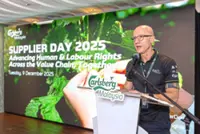NIGHTMARES hit differently when one is a parent or guardian to a person with disabilities.
More often than not, the greatest nightmare they harbour is leaving behind their child with the uncertainty of what the future holds and inability to care for themselves.
Follow us on our official WhatsApp channel for breaking news alerts and key updates!
Thank you for your report!





